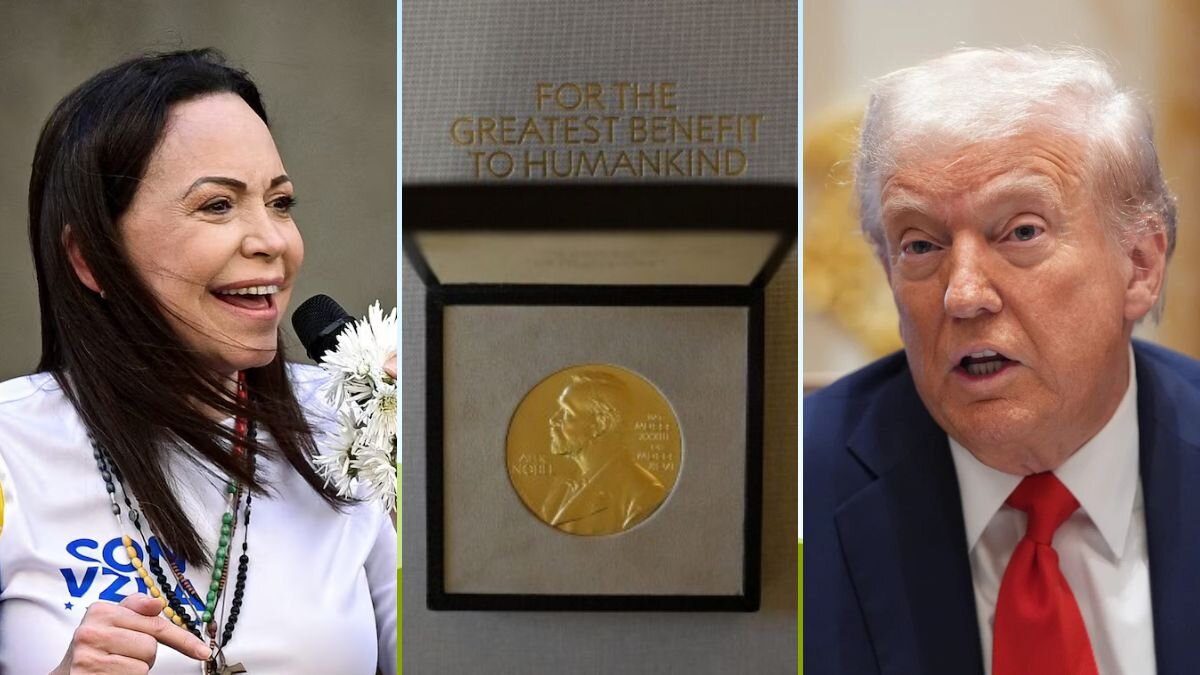Bloodied hands, misplaced laurels: Why neither Trump nor Machado deserves praise
Sponsoring war, sanctions, and regime change is not a résumé for peace

TEHRAN – In a move that pleased Washington’s propaganda machinery, the Norwegian Nobel Committee chose Venezuelan opponent María Corina Machado over a president who spent months begging for a medal.
Machado’s selection — and her immediate, public dedication of the award to Donald Trump — tells us exactly what went on: the committee rewarded a Western-aligned opponent of an anti-U.S. government, while snubbing the spectacle of presidential self-congratulation.
The scene is almost comic: a modern president lobbied like an entitled applicant, amplifying every cease-fire he could claim and posting highlight reels where diplomacy’s messy work had already been done by others.
The White House’s tantrum — accusing the committee of putting “politics over peace” — reads more like wounded vanity than moral argument.
The deeper motive is obvious: Trump’s hunger for the prize blends ego and a very public envy of Barack Obama, who famously won his Nobel early and left aides flummoxed (Ben Rhodes’s memoir captures that White House bafflement). The chase was childish and transparently transactional.
Machado’s victory is not an apolitical honor; it is a geopolitical signal.
Her politics align with U.S. regime-change currents, and her elevation conveniently bestows moral gloss on opposition forces that have courted Washington’s favor — even as behind-the-scenes diplomacy with Caracas explored commercial concessions and strategic resource deals.
The NYT’s Friday reporting has shown how talks between U.S. envoys and Venezuelan officials involved sweeping offers over oil and mining access — facts that underscore the material stakes behind “democracy” rhetoric.
Two painful truths follow. First, the Nobel prize itself is not an apolitical oracle; it was established by Alfred Nobel — an explosives industrialist whose fortune still haunts the award’s optics — and it has long been susceptible to geopolitical instrumentalization.
That history helps explain why laureates like Henry Kissinger or Barack Obama provoked outrage: the prize can sanctify powers even as those powers wage war.
Second, even if you presumably grant the committee some legitimacy, neither Machado nor Trump merits the moral laurels.
Machado has courted wanted war criminal Benjamin Netanyahu to intervene in Venezuela, embraced aggressive measures toward Maduro, and backed policies — sanctions and privatization pitches — that critics say have devastated ordinary Venezuelans (scholars have estimated tens of thousands of deaths tied to sanctions’ effects).
Trump’s “peace” record is equally thin: U.S. military backing for Israeli war crimes, massive arms transfers, and recent U.S. strikes that joined a 12-day war on Iran in which over 1060 Iranians were killed — actions he publicly boasted about — are hardly the work of a genuine peacemaker.
The Nobel Committee didn’t just reject a man — it revealed a farce.
Whether you loathe Trump or admire Machado, the real scandal is structural: a prize created by an arms magnate has repeatedly been folded into the service of empire.
If we want peace, we should stop treating symbolic medals as substitutes for accountability. The world needs justice and genuine diplomacy — not awards that tidy up violence with a ribbon.
Leave a Comment